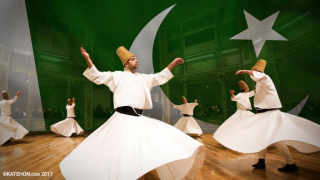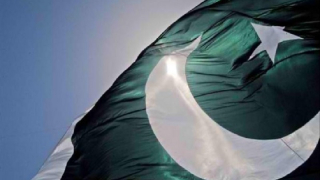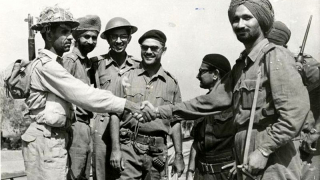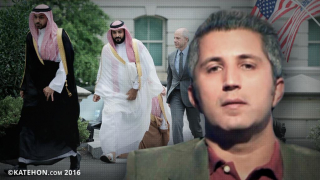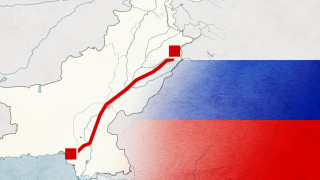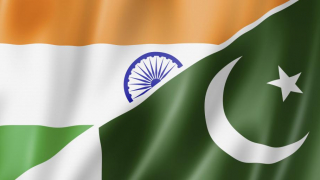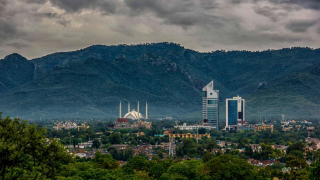Pakistan: The Harbinger of Peace
06.11.2019
From the U2 scandal to the killing of Usman bin Laden, Pakistan as a country has been seen in negative terms in the international news which in turn has significantly affected its standing in the world of international affairs. However, recently there has been a marked positive shift in Pakistan’s overall foreign policy outlook. Gradually, the image built of despair and impertinence ever since its creation is now being refracted through a prism of hope and relevance. Through pro-active diplomacy in an expeditiously changing geopolitical region, Pakistan is trying to completely re-arrange its perspective mosaic.
Although it all started when Prime minister Imran Khan came to power in 2018, the Kashmir crisis in August proved to be a power booster by providing Pakistan momentum and opportunity to highlight the freedom struggle of people of Kashmir to the world. The headline seen in all of the major global media outlets recently demonstrates the efficacy of Pakistan’s efforts. PM Khan’s diplomatic and logical approach in his first-ever speech at the United Nations General Assembly (UNGA) this year was declared by critics as extremely sincere riding on the words of wisdom. The speech not only announced PM Khan as an effective leader in the global geopolitical landscape but it also brought about a change of heart of human rights organizations and global media vis-à-vis Pakistan.
Pakistan’s role as a facilitator and influencer in the Afghan peace process has been exceptional. Even President Trump who seldom offers praise for any other country recognized and appreciated Pakistan’s efforts to bring all the stakeholders of the Afghan conflict to the table. For several months, Taliban refused to engage the US in peace talks. Eventually, it was Pakistan that accepted the US request and revived hopes of peace by bringing Taliban to the negotiating table. Despite India’s fierce resistance to any kind of peace resolution in Afghanistan, Pakistan also helped US negotiate the peace agreement with the Taliban.
Last month missile attacks on Saudi Arabia’s biggest oil company Aramco’s largest oil processing facility brought the already simmering Saudi-Iran conflict to a boiling point. The rivalry that stems from pre-Islamic Arab-Persian conflict was reignited after the attacks. All of the significant western powers like US, UK, Germany, and France aligned with Saudi Arabia and issued hawkish statements against Iran. Pakistan being a neighbour of Iran and having close relations with Saudi Arabia realized that conflagration would have serious repercussions for regional peace and prosperity. Many commentators expressed pessimistic views regarding Pakistan’s capacity, capability and acceptability to both Iran and Saudi Arabia as a mediator. In the end, Pakistan, through its pro-active diplomacy got the ball rolling and made the peace process to commence.
PM Imran notwithstanding some triangular reservations among Iran, Pakistan, and Saudi-Arabia took a bold step to visit both Iran and Saudi Arabia. The visit shall take some time to yield results but it promises significant dividends for regional peace. The shuttle diplomatic engagement is expected to act as a bridge in conveying frank signals, clearing the fog of misunderstanding and develop a realization to find an acceptable solution.
Pakistan has come out as a strong advocate of combating rising Islamophobia and its close alignment with Turkey and Malaysia on this subject has created a substantial impact on the capitals around the globe. As a result of PM Khan’s efforts, Turkey, Pakistan and Malaysia have decided to launch a joint international TV channel to counter Islamophobia. Pak-Turk and Malaysian trilateral relations unarguably will impact the geopolitics of the whole world from Turkey in West, Malaysia in East and Pakistan in the Middle East. Pakistan being the only Muslim nuclear country in the world holds compelling influence as a regional lynchpin and a critical peacemaker in the fragmented and fragile Islamic world.
Pakistan’s success on the international stage will have a momentous impact on its domestic foreign policy clout. A Pakistan brokered Afghan peace deal is in the final stages of its completion and there are also strong indications suggesting Pakistan's success in reducing tension in the Middle-East including the Yemen conflict solution. Both of these events would prove profoundly helpful to Pakistan on the diplomatic front and act as a catalyst in adding credibility and acceptability to its stance on Kashmir and other foreign policy positions.
Prime Minister Imran Khan holds the key for Pakistan to open the doors that leads the country towards regaining its lost space in the world of international diplomacy. PM Khan’s bold leadership, sincere, unbiased, frank and logical views can revitalize the Muslim brotherhood spirit around the globe, and help to create an effective and responsive Islamic block that can challenge the Western world unapologetically. Indeed, Pakistan and PM Khan are walking on a tightrope but considering the returns, the effort is worth it. Besides, nothing worth having comes easy.


